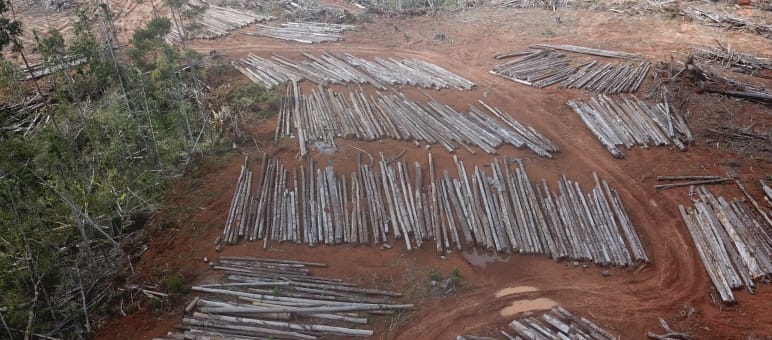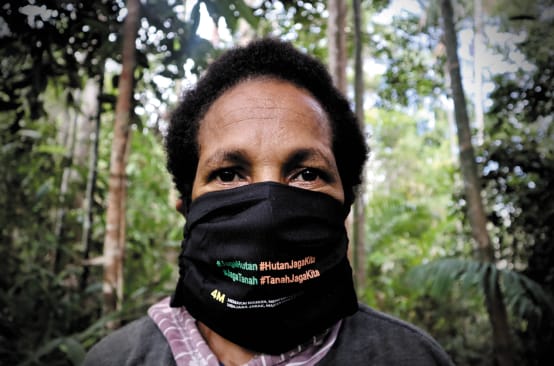
Papua's forests face an unparalleled assault
More than a quarter million hectares of forest are being clear-cut in Papua for the largest oil palm plantation in the world. Digoel Agri Group is the company behind the scandalous forest destruction.
Shocking news from Papua: Permission has been granted to clear-cut 280,000 hectares – a brutal assault on the largest remaining tracts of rainforest in Southeast Asia – for the Tanah Merah project, slated to become the world’s largest oil palm plantation.
As reported by the Gecko Project, the Indonesian organization Pusaka and the Mongabay environmental news service, Digoel Agri Group, a company founded by a politically connected Jakarta family, has started clear-cutting operations. 170 hectares have already been destroyed.
Papua is Indonesia’s easternmost province, neighboring the state of Papua New Guinea. The project is located in the district of Boven Digoel, where the Indonesian-Korean Korindo Group has been logging rainforests for years. Since 2010, Merauke Integrated Food and Energy Estate (MIFEE) mega-plantations for oil palms and rice have been eating their way into the forest of the indigenous Mahuze people in the southern district of Merauke.
The new mega-project marks the start of the complete destruction of the richly biodiverse forests of southeastern Papua – a tragedy for biodiversity, the climate, indigenous people and human health!
The run on Papua’s land began in 2007, at a time when a rice shortage threatened food security in Indonesia and demand for palm oil for biofuel was booming. Since then, hundreds of permits covering more than four million hectares have been issued. At least one million hectares of forest have been destroyed. Today, oil palms – not rice – are the main crop growing there.
Concessions in the district of Boven Digoel in particular changed hands repeatedly under obscure conditions, raising suspicions of nepotism, corruption and fraud. According to the Gecko Project, one local politician was still signing permits while serving a jail sentence.
The newly founded Digoel Agri Group has taken over the Tanah Merah project. Greenpeace Indonesia has described this move as a public scandal due to “irregularities” in the approval process and environmental and social concerns. We support the demands of numerous local people, human rights activists and environmentalists to stop the logging without delay.
The report by the Gecko Project, Pusaka and Mongabay is a shocking depiction of how Indonesian politics and business are intertwined. The promises of the Indonesian government to protect primary and peat forests and to take measures to benefit the climate are clearly nothing but empty words.
This page is available in the following languages:

Saving the rainforest of southern Papua and empowering Indigenous Papuans
Where birds of paradise still dance, Indigenous defenders face bulldozers in a struggle over Papua’s future. Our partner Pusaka is in the front line.

Samsung, get out of Papua’s rainforests!
Smartphones are not the only things going up in flames in Samsung's business empire: the group recently invested in a palm oil company that is torching Papua’s rainforests.

Palm oil
Palm oil is literally everywhere – in our foods, cosmetics, cleaning products and fuels. How could it come to this?